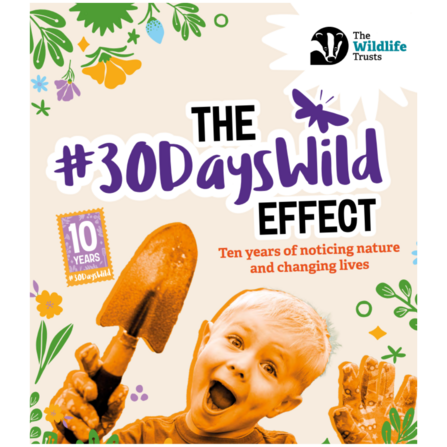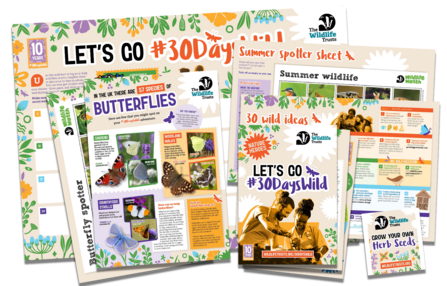The Wildlife Trusts are urging the public to nurture nature this June to celebrate the tenth birthday of 30 Days Wild.
This year, the month-long nature challenge to do something wild every single day in June is backed by TV stars Dermot O’Leary, Liz Bonnin and Dr Amir Khan. Since 2015, over three million people have taken part including over 20,000 schools, 1,500 care homes and almost 2,000 businesses.


